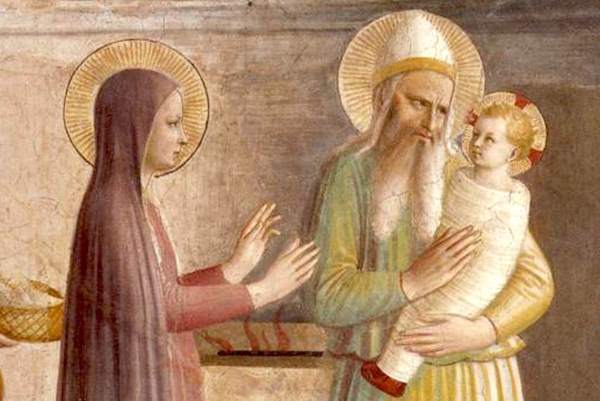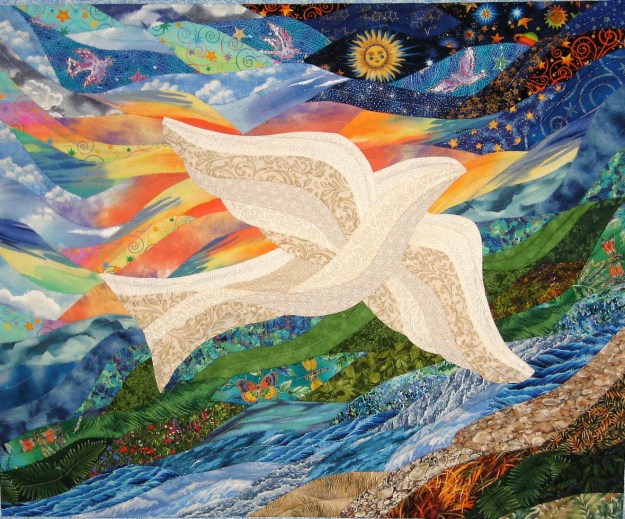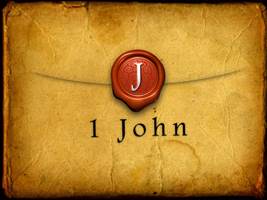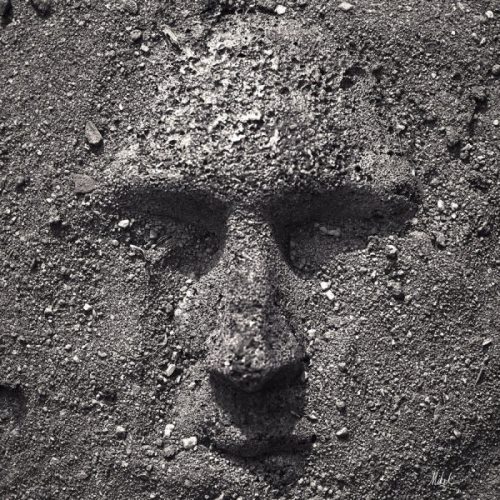
The end of the Easter season is fast approaching and we will pack away our Alleluia responses for another year (liturgically and in theory). So before we do so here is a reminder that that our praise of God comes not just in liturgical form but in practical acts of loving one another as well.
Based on the following readings: John 15:9-17 and Acts 10:44-48
May I speak and may you hear through the grace of our Lord; Father, Son and Holy Spirit. Amen
Who’s still excited that it’s still Easter? Perhaps our Alleluia’s that we waited so long to hear after Lent as little more subdued, not quite so resounding? Well, we’ve come to the Sixth Sunday of Easter and we should be excited because the Easter season is building to its climax. Over these past weeks we have been celebrating the joy of the resurrections and the presence of the risen Christ appearing to his first disciples and being among us still. And yet on Thursday it will be Ascension Day when we remember Jesus’ departure from his disciples and his return to be with his heavenly Father for all eternity. We are therefore, liturgically at least, reaching a turning point.
In the weeks leading up to his death, Jesus had been preparing his apprehensive disciples for the shock when he is taken away from them; wanting to give them reassurance of his continuing love and presence with them afterwards, and giving them instructions for how the church (with a small c) should live. Of course, as disciples today, we can never get back behind Easter, because we hear Jesus’ reassurances in the light of our Easter experience, knowing that he rose from the dead to be with them and with us. So his warnings of his imminent departure and the coming of the Holy Spirit as a guide, resonate in our experience as we look toward Ascension Day and Pentecost, soon to come.
So, here today we hear Jesus continuing to give his disciples ‘commandments’, underlying all of which is the commandment given by God to Moses, the imperative that people should show by their lives what their God is like, which Jesus has fulfilled utterly. The example that Jesus gives, of his own willingness to die for his friends, is not a comforting one. Is that, then, to be the measure of love?
Well the gospel suggests that sometimes it is, and we know that nearly all of Jesus’ original disciples were called to do that in one way or another and those who followed after them were often martyred for their faith. However, the verses that follow this commandment suggest that there are other interim measures too.
One such measure is the role that we play, ‘I have called you friends, because I have made known to you everything that I have heard from my Father. This sharing between Father and Son is extended to us. We are not simply issued with instructions that we must follow without needing to understand them. Instead we are invited to God’s table, to eat and discuss and share his great plan for the world.
Therefore, it naturally follows that one mark of our ‘love’ for one another and God will be our willingness to extend this invitation to others. Not to be an introverted, cozy warm church where we are all having a wonderful time, but ‘Come and join us at God’s table, come and help us to work out with God what to do next’. I wonder if you can remember when you received that invitation? Not simply an invitation to come to church, but the sense that God was calling you, through Jesus, come and find out more; a sense that you had been chosen to be part of the whole Christian way of life and love. As Jesus tells his disciples that they didn’t chose him, but he chose them. In the same way it is not we who chose God, but God who, in his grace, approached us with a call and an offer made out of his love.
This is certainly the experience of Peter and his companions as they watch Cornelius and his household respond to the love of God. They hear these strangers praising God long before they have gone through all the rules and regulations of what you’ll need to do be a proper Christian! Even so everyone needs guidance and God has this in hand when he gives us our different gifts and talents, both academic and practical.
The thing about guidance though it that it should be more about learning than teaching. We learn better when we engage with our whole bodies – as I spoke about a few weeks ago, we need to love with all our mind, our body and our soul… I know that I have learned more about loving one another from people who have demonstrated this unconditional love of Christ, people who show love and compassion to loved ones with dementia, never getting annoyed or frustrated. People who give their time to serve others without any thought of reward or recompense. People who do things cheerfully and willingly, who never moan that it’s always them left to do something, when others have walked away oblivious to the fact that they might have shared a task.
It is deeply challenging and amplifying to see the word of God at work in the lives of others, and to see that before me and my feeble attempts at love got anywhere near a situation, that God’s love was already at work. I’m standing here talking to you this morning about love, but who remembers anything I or anyone else has said, if all you hear is someone ‘telling’ you? In fact, research shows that within just one hour, if nothing is done with new information, most people will have forgotten about 50% of what they learned. After 24 hours, this will be 70%, and if a week passes without that information being used, up to 90% of it could be lost.
Maybe then, I need to get us to do something a bit more practical to try to help us learn, and I’ve put this in the middle of my talk to see who’s still listening up to this point! Something that will help us think about being called to love one another whoever that might be. So when it comes to exchange the peace this morning, rather than simply shake someone’s hand, then look past them for the next hand to shake – as you take that person’s hand, briefly look them in the eye, offer them the words of peace, but let this thought go through your mind each time you do…. ‘This is someone I am called to love – how might I do that?’ Remember no need for fuss, just simply use that thought each time, ‘This is someone I am called to love – how might I do that?’
That’s something then to help us to share love between like-minded people, but we are also chosen in love and for love, and are sent out into the world to love one another. So that’s a thought we should have in our head every time we meet other people as well. Because, sometimes we live as if we were sent into the world to compete with one another, or to dispute with one another, or even to quarrel with one another. Many tell people to love each other when their whole lives are a demonstration that that is the last thing they do themselves. That is not the way of love.
However, we can become confused about being ‘commanded’ to love – perhaps our natural instinct is to say, ‘well actually I don’t think I can love in the same way that you did Jesus’. When Jesus talks about commanding, this is not a peremptory legalistic order, neither is it quite an instructional encouragement, it’s more a necessary requirement. The fact is that you cannot legislate for love, but God, through Jesus, can command us to love and discovering the difference between the two is one of the great arts of being human. The ‘command’ to love is given by one who has himself done everything that love can do. When mothers and fathers love their child, they create a context in which the child is free to love them in return. When a ruler really does love his or her subjects, and when this becomes clear by generous and warm-hearted actions, he or she creates a context in which the subjects can and will love them in return.
So when Jesus issues the command that we are to love one another, we do so because he has acted out and will act out the greatest thing that love can do. He has made us more human, not less because we do this in freedom and joy. So that we can bear fruit that will last, whether in terms of a single life changed because we loved somebody as Jesus loved us, or in terms of a single decision that we had to take, … or a single task we had to perform… through which, though we couldn’t see it at the time, the world became a different place.
So let’s enjoy these last few days of the Easter season. Alleluia, Christ is risen!…. he is risen indeed, alleluia!

 couple standing still in amongst all of this bustle and hubbub. The woman holding a young baby in her arms, close to her body as if this disturbance would wrestle her precious child away from her; surely their first-born.
couple standing still in amongst all of this bustle and hubbub. The woman holding a young baby in her arms, close to her body as if this disturbance would wrestle her precious child away from her; surely their first-born.  deliberately in my direction. I stand still and wait. Without them saying a word the child is proffered to me and as I take this small bundle of humanity into my own arms I am struck by the firm unwavering gaze that connects us, young and old, wise and innocent, master and servant.
deliberately in my direction. I stand still and wait. Without them saying a word the child is proffered to me and as I take this small bundle of humanity into my own arms I am struck by the firm unwavering gaze that connects us, young and old, wise and innocent, master and servant. born among us, comes unannounced to your temple, but his presence here shouts of salvation for us all, for Jew, for gentile, for the whole of humankind. Oh, that I have been blessed to know that through him you will bring glory to your chosen people, which leaves my heart and mind at ease so that there is nothing more needed in this your humble servant’s life but to wait for your calling me to the future eternal kingdom.’
born among us, comes unannounced to your temple, but his presence here shouts of salvation for us all, for Jew, for gentile, for the whole of humankind. Oh, that I have been blessed to know that through him you will bring glory to your chosen people, which leaves my heart and mind at ease so that there is nothing more needed in this your humble servant’s life but to wait for your calling me to the future eternal kingdom.’



























